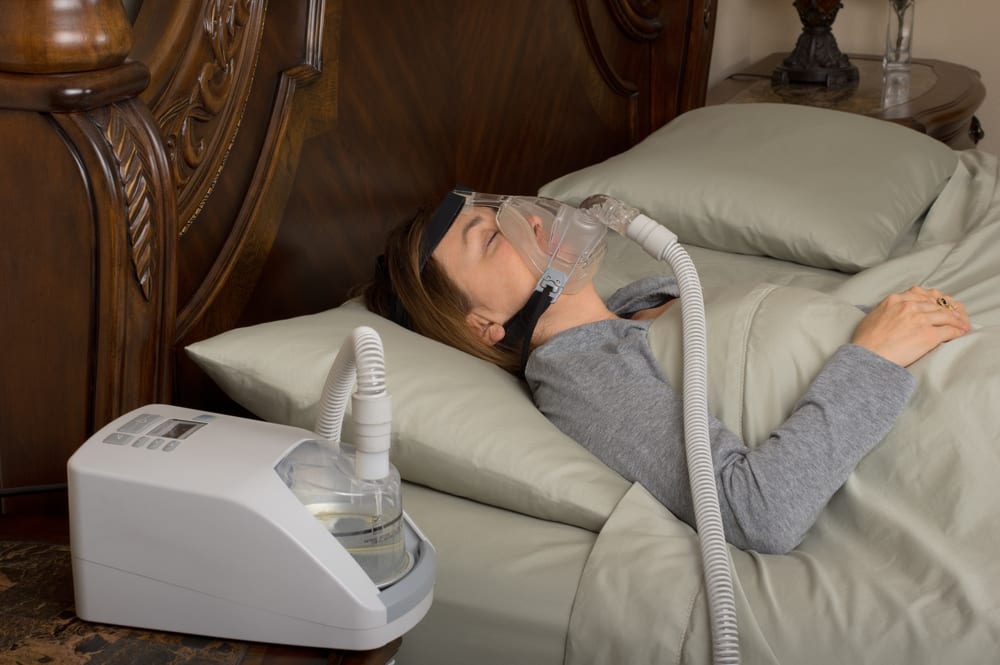Recent research undertaken by the American Academy of Neurology points toward a connection between dementia and sleep disruption. While there is much research left to be done, the study, which will be presented later this year at the academy’s annual meeting in Philadephia, is another reminder of the importance of treating sleep apnea.
Doctors Victoria Uryniak and Carson Ferris-Zeolla treat sleep apnea at Walnut Pond Dental in Annandale, NJ. If you or a loved one suffers from sleep apnea, contact us today at 908-200-7007 for a consultation. Our goal is to treat and heal so we can improve your overall quality of life.
What is Alzheimer’s Disease?
Alzheimer’s disease is a progressive disorder that causes the cells in the brain to degenerate and die. Alzheimer’s disease is a common cause of dementia. Dementia refers to a gradual decline in cognitive abilities that may disrupt behavior and social skills. The early signs of Alzheimer’s Disease are lapses in memory and loss of focus. As the disease progresses, individuals with the disease may develop more serious memory impairment, and eventually, they may lose the ability to carry out normal, everyday tasks.
How are Sleep Apnea and Alzheimer’s Disease Linked?
The research is focusing on a toxic protein called tau. The protein is a known bio-hallmark of Alzheimer’s disease. Heavy snorers accumulate the protein in the part of the brain that manages memory, navigation, and time perception.
Patients with obstructive sleep apnea may be at increased risk of dementia. Obstructive sleep apnea occurs when the throat muscles relax and block airways during sleep. One symptom of obstructive sleep apnea is snoring.
Dr. Diego Z. Carvalho, a neurology fellow at the Mayo Clinic, recently said that current research is pointing to the possibility that “sleep apnea affects tau accumulation.”
Some of the recent research resulted from studies where participants were asked to track the times when their snoring bed partners stopped breathing during sleep. Brain scans measured buildups of tau in the entorhinal cortex, the part of the brain that is most vulnerable to tau accumulation.
As the science stands now, there is a link between snoring, sleep apnea, tau, and Alzheimer’s, but correlation is not the same as causation. The research continues.
Symptoms and Treatments for Sleep Apnea
Obstructive sleep apnea (OSA) causes breathing to start and stop during sleep. Age, gender, genetics, weight, and the structure of your mouth, nose, and throat are all risk factors for OSA. OSA was found to be the most significant risk factor for tau production at night.
Beyond snoring, symptoms of OSA include:
- Daytime drowsiness
- Intermittent waking from sleep
- Choking or gasping for air at night
- Nighttime sweats
- Mood changes
- Difficulty concentrating during the day
- Irritability
- Confusion
- High blood pressure
At Walnut Pond Dental, we will design a comprehensive sleep apnea treatment regimen for you. Some common treatments include:
- Continuous positive airway pressure (CPAP) machines
- Custom oral appliances
- Lifestyle changes, such as weight loss and ceasing tobacco and alcohol use
- Changing sleep posture
Contact Us Today
A restful sleep may lower your chances of developing dementia. Sleep apnea is already proven to increase the risk of heart attack, stroke, and atrial fibrillation, among others. To learn more about our sleep apnea treatment options, reach out to us online or call us by dialing 908-200-7007.






